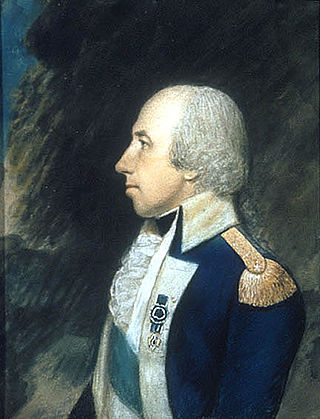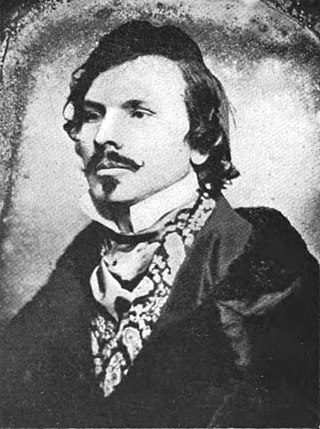Plot summary
When Israel Potter leaves his plow to fight in the American Revolution, he is immediately thrown into the Battle of Bunker Hill, where he receives multiple wounds. However, this does not deter him, and after hearing a rousing speech by General George Washington, he volunteers for further duty, this time at sea, where more ill fortune awaits him. Israel is captured by the British Navy and taken to England. Yet, he makes his escape, and this triggers a series of extraordinary events and meetings with remarkable people. Along the way, Israel encounters King George III, who takes a liking to the Yankee rebel and shelters him in Kew Gardens; Benjamin Franklin, who presses Israel into service as a spy; John Paul Jones, who invites Israel to join his crew aboard The Ranger; and Ethan Allen, whom Israel attempts to free from a British prison. Throughout these adventures, Israel Potter acquits himself bravely, but his patriotic valor does not bring him any closer to his dream of returning to America. After the war, Israel finds himself in London, where he descends into poverty. Finally, fifty years after he left his plough, he makes his way back to his beloved Berkshires. However, few things remain the same. Soon, Israel fades out of being, his name out of memory, and he dies on the same day the oldest oak on his native lands is blown down.
Reception
At about 60,000 words, the novel is much shorter than the major novels but significantly longer than two of Melville's greatest stories, "Bartleby, the Scrivener" and "Benito Cereno", which were written during the same period and included the following year in The Piazza Tales . It followed the disastrous critical and commercial failure of his previous novel, Pierre: or, The Ambiguities . Melville disliked the finished work and claimed that he wrote it as quickly as possible for the money. Marred by a passive, colorless and astonishingly unlucky hero and a depressingly anticlimactic ending, this novel of the American Revolution was a total commercial failure. In recent years, however, many critics have argued that the novel shows Melville comfortable in his narrative powers and indulging his considerable talents for humor, sly characterization, episodic action, and unsettling understatement. It is one of his easiest books to read, which is all the more surprising in that it was followed by perhaps his most difficult prose work, The Confidence-Man , in 1857.

Herman Melville was an American novelist, short story writer, and poet of the American Renaissance period. Among his best-known works are Moby-Dick (1851); Typee (1846), a romanticized account of his experiences in Polynesia; and Billy Budd, Sailor, a posthumously published novella. At the time of his death, Melville was no longer well known to the public, but the 1919 centennial of his birth was the starting point of a Melville revival. Moby-Dick eventually would be considered one of the great American novels.

Israel Putnam, popularly known as "Old Put", was an American military officer and landowner who fought with distinction at the Battle of Bunker Hill during the American Revolutionary War (1775–1783). He also served as an officer with Rogers' Rangers during the French and Indian War (1754–1763), when he was captured by Mohawk warriors. He was saved from the ritual burning given to enemies by the intervention of French officer Molang, with whom the Mohawks were allied. Putnam's courage and fighting spirit became known far beyond his home of Connecticut's borders through the circulation of folk legends in the American colonies and states celebrating his exploits.

The Battle of Bunker Hill was fought on June 17, 1775, during the Siege of Boston in the first stage of the American Revolutionary War. The battle is named after Bunker Hill in Charlestown, Massachusetts, which was peripherally involved. It was the original objective of both the colonial and British troops, though the majority of combat took place on the adjacent hill which became known as Breed's Hill.

James Fenimore Cooper was an American writer of the first half of the 19th century, whose historical romances depicting colonial and indigenous characters from the 17th to the 19th centuries brought him fame and fortune. He lived much of his boyhood and his last fifteen years in Cooperstown, New York, which was founded by his father William Cooper on property that he owned. Cooper became a member of the Episcopal Church shortly before his death and contributed generously to it. He attended Yale University for three years, where he was a member of the Linonian Society.

Henry Dearborn was an American military officer and politician. In the Revolutionary War, he served under Benedict Arnold in his expedition to Quebec, of which his journal provides an important record. After being captured and exchanged, he served in George Washington's Continental Army. He was present at the British surrender at Yorktown. Dearborn served on General George Washington's staff in Virginia.

William Howitt, was a prolific English writer on history and other subjects. Howitt Primary Community School in Heanor, Derbyshire, is named after him and his wife.
"Bartleby, the Scrivener: A Story of Wall Street" is a short story by the American writer Herman Melville, first serialized anonymously in two parts in the November and December 1853 issues of Putnam's Magazine and reprinted with minor textual alterations in his The Piazza Tales in 1856. In the story, a Wall Street lawyer hires a new clerk who, after an initial bout of hard work, refuses to make copies or do any other task required of him, responding to any request with the words "I would prefer not to."

Rufus Putnam was an American military officer who fought during the French and Indian War and the American Revolutionary War. As an organizer of the Ohio Company of Associates, he was instrumental in the initial colonization by the United States of former Native American, English, and French lands in the Northwest Territory in present-day Ohio following the war.

Thomas Tew, also known as the Rhode Island Pirate, was a 17th-century English privateer-turned-pirate. He embarked on two major pirate voyages and met a bloody death on the second, and he pioneered the route which became known as the Pirate Round. Other infamous pirates in his path included Henry Avery and William Kidd.

Thomas Mayne Reid was a British novelist who fought in the Mexican–American War (1846–1848). His many works on American life describe colonial policy in the American colonies, the horrors of slave labour, and the lives of American Indians. "Captain" Reid wrote adventure novels akin to those by Frederick Marryat and Robert Louis Stevenson. They were set mainly in the American West, Mexico, South Africa, the Himalayas, and Jamaica. He was an admirer of Lord Byron. His novel Quadroon (1856), an anti-slavery work, was later adapted as a play entitled The Octoroon (1859) by Dion Boucicault and produced in New York.

Oak Lawn or Oaklawn is a historical village in southwest Cranston, Rhode Island. Before being named "Oak Lawn" in 1872 the area was known as "Searle's Corner". The Edward Searle House, built in 1677, and one of the oldest standing structures in Rhode Island, is located in Oak Lawn. The village is known for its annual May Breakfast, a New England tradition that began in Oak Lawn in 1865 as a way for the members of the Oak Lawn Baptist Church to raise money for local American Civil War veterans. The 1855 Herman Melville novel "Israel Potter" is based on the life and adventures of an American Revolutionary soldier who was raised on a farm near present-day Oak Lawn. Oak Lawn is also the site of an important archeological excavation: in the 1950s archeologists discovered bowls and other Native American artifacts, carved from soapstone and dating back more than 10,000 years. In the pre-colonial era the area was populated with bands of the Narragansett Indians known as the "Meshanticut" and "Natick" Indians.

Nathaniel Philbrick is an American author of history, winner of the National Book Award, and a finalist for the Pulitzer Prize. His maritime history, In the Heart of the Sea: The Tragedy of the Whaleship Essex, is based on what inspired Herman Melville to author Moby-Dick, won the 2000 National Book Award for Nonfiction and was adapted as a film in 2015.

Ethan Allen Hitchcock was a career United States Army officer and author who had War Department assignments in Washington, D.C., during the American Civil War, in which he served as a major general.

George Lewis Becke was at the turn of the nineteenth century, the most prolific, significant, and internationally renowned Australian-born writer of the South Pacific region. Having lived and worked among Pacific Islands and Islanders as a trader, ship's supercargo, and villager for some two decades, learning languages and observing natural and cultural life, Becke was prompted by J F Archibald of The Bulletin to write down his experiences, eventually becoming a popular and respected author of short stories, novellas, novels, as well as historic and ethnographic works.

Benjamin Ruggles Woodbridge was an American physician, lawyer, farmer, and military officer who served as a colonel in the Massachusetts militia during the American Revolutionary War. Woodbridge was a commander at the Battle of Bunker Hill, and also owned a rum still, a wood lot, a grazing meadow, and a mill, and came to be the wealthiest man in South Hadley, Massachusetts. Colonel Woodbridge was also a member of the Massachusetts legislature for many years.
Lord William Pitt Lennox was a British Army officer and writer.
George Housman Thomas, was a British wood-engraver, illustrator and painter.

William Dalton (1821–1875) was a Victorian-era British author of adventure stories for youth set in exotic locations such as China, Japan and Peru. He wrote most of his books during a seven-year period between about 1857 to 1864. He was also chief Editor of the London Daily Telegraph for some time.

The Dearborn–Putnam controversy erupted in 1818 when Henry Dearborn published a post-war account of General Israel Putnam's performance during the Battle of Bunker Hill in 1775. Both Putnam and the much younger Dearborn were present before and during the battle, with Dearborn at the front lines while Putnam was about the battle scene directing troops and overseeing the construction of fortifications before the fighting began. Accounts of Putnam's presence during the battle, however, have varied among veteran officers of the battle and some historians. During the battle, there was a fair amount of disorganization among the hastily assembled Continental Army and militia, making it difficult for any one participant to give an overall assessment of everyone's performance.
Walter E. Bezanson was a scholar and critic of American literature best known for his studies of Herman Melville and contributions to the Melville revival that restored the writer to prominence in the 1940s and 1950s. Bezanson's research and editorial work rescued from neglect Mevlille's unappreciated epic poem, Clarel, and he published essays on Moby-Dick that were widely cited and reprinted.















